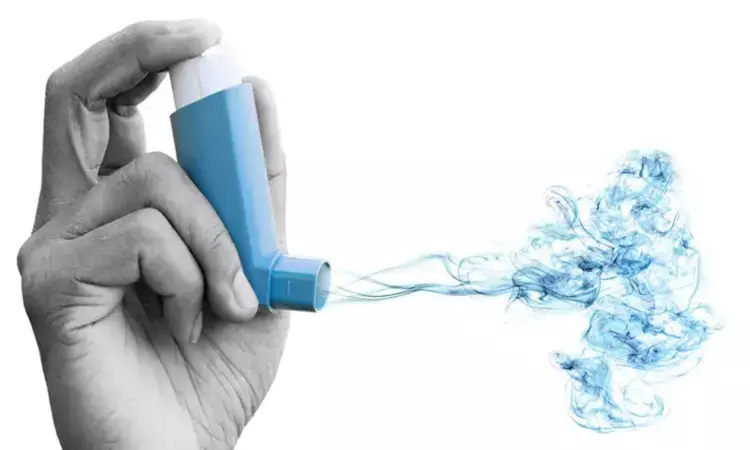- Home
- Medical news & Guidelines
- Anesthesiology
- Cardiology and CTVS
- Critical Care
- Dentistry
- Dermatology
- Diabetes and Endocrinology
- ENT
- Gastroenterology
- Medicine
- Nephrology
- Neurology
- Obstretics-Gynaecology
- Oncology
- Ophthalmology
- Orthopaedics
- Pediatrics-Neonatology
- Psychiatry
- Pulmonology
- Radiology
- Surgery
- Urology
- Laboratory Medicine
- Diet
- Nursing
- Paramedical
- Physiotherapy
- Health news
- Fact Check
- Bone Health Fact Check
- Brain Health Fact Check
- Cancer Related Fact Check
- Child Care Fact Check
- Dental and oral health fact check
- Diabetes and metabolic health fact check
- Diet and Nutrition Fact Check
- Eye and ENT Care Fact Check
- Fitness fact check
- Gut health fact check
- Heart health fact check
- Kidney health fact check
- Medical education fact check
- Men's health fact check
- Respiratory fact check
- Skin and hair care fact check
- Vaccine and Immunization fact check
- Women's health fact check
- AYUSH
- State News
- Andaman and Nicobar Islands
- Andhra Pradesh
- Arunachal Pradesh
- Assam
- Bihar
- Chandigarh
- Chattisgarh
- Dadra and Nagar Haveli
- Daman and Diu
- Delhi
- Goa
- Gujarat
- Haryana
- Himachal Pradesh
- Jammu & Kashmir
- Jharkhand
- Karnataka
- Kerala
- Ladakh
- Lakshadweep
- Madhya Pradesh
- Maharashtra
- Manipur
- Meghalaya
- Mizoram
- Nagaland
- Odisha
- Puducherry
- Punjab
- Rajasthan
- Sikkim
- Tamil Nadu
- Telangana
- Tripura
- Uttar Pradesh
- Uttrakhand
- West Bengal
- Medical Education
- Industry
Use of Asthma medications not linked to risk of dental caries in children

Use of Asthma medications not linked to risk of dental caries in children suggests a new study published in the Pediatric Allergy and Immunology.
Dental caries and enamel defects are the main causes of poor dental health in children, with a substantial impact on their well-being. Use of inhaled asthma medication is a suspected risk factor, but there is a lack of prospective studies investigating this and other prenatal and early life risk factors.
Copenhagen Prospective Studies on Asthma in Childhood 2010 mother–child cohort (COPSAC2010) consists of 700 women who were recruited at 24 weeks of pregnancy. 588 of their children participated in a dental examination at 6 years of age (84%) at the COPSAC2010 research unit. Caries was defined as decayed, missing, or filled surfaces. Enamel defect was defined as demarcated opacity, post-eruptive enamel breakdown, and/or atypical restoration on at least one molar. Caries and enamel defects were assessed in both deciduous and permanent dentitions.
Results
There were no associations between inhaled corticosteroids or β2-agonists or asthma symptoms in early childhood and the risk of caries or enamel defects by 6 years of age. Furthermore, we found no strong pre-, peri-, or postnatal risk factors for dental diseases at 6 years, except from nominally significant associations between antibiotic use in pregnancy (OR = 1.25, [1.01–1.54]), maternal education level (OR = 1.57, [1.01–2.45]), having a dog at home (OR = 0.50, [0.27–0.93]), and risk of enamel defects.
Use of inhaled corticosteroids, β2-agonists, or asthma symptoms in the first 6 years of life were not associated with the development of caries or enamel defects. This finding is reassuring for parents and physicians prescribing asthma medication for young children
Reference:
Nørrisgaard, PE, Haubek, D, Schoos, A-M, et al. Asthma medication and risk of dental diseases in children – A prospective cohort study. Pediatr Allergy Immunol. 2023; 34:e14026. doi:10.1111/pai.14026
Keywords:
Use, Asthma, medications, not, linked, risk, dental, caries, children , Pediatric Allergy and Immunology, ørrisgaard, PE, Haubek, D, Schoos, A-
Dr. Shravani Dali has completed her BDS from Pravara institute of medical sciences, loni. Following which she extensively worked in the healthcare sector for 2+ years. She has been actively involved in writing blogs in field of health and wellness. Currently she is pursuing her Masters of public health-health administration from Tata institute of social sciences. She can be contacted at editorial@medicaldialogues.in.
Dr Kamal Kant Kohli-MBBS, DTCD- a chest specialist with more than 30 years of practice and a flair for writing clinical articles, Dr Kamal Kant Kohli joined Medical Dialogues as a Chief Editor of Medical News. Besides writing articles, as an editor, he proofreads and verifies all the medical content published on Medical Dialogues including those coming from journals, studies,medical conferences,guidelines etc. Email: drkohli@medicaldialogues.in. Contact no. 011-43720751


